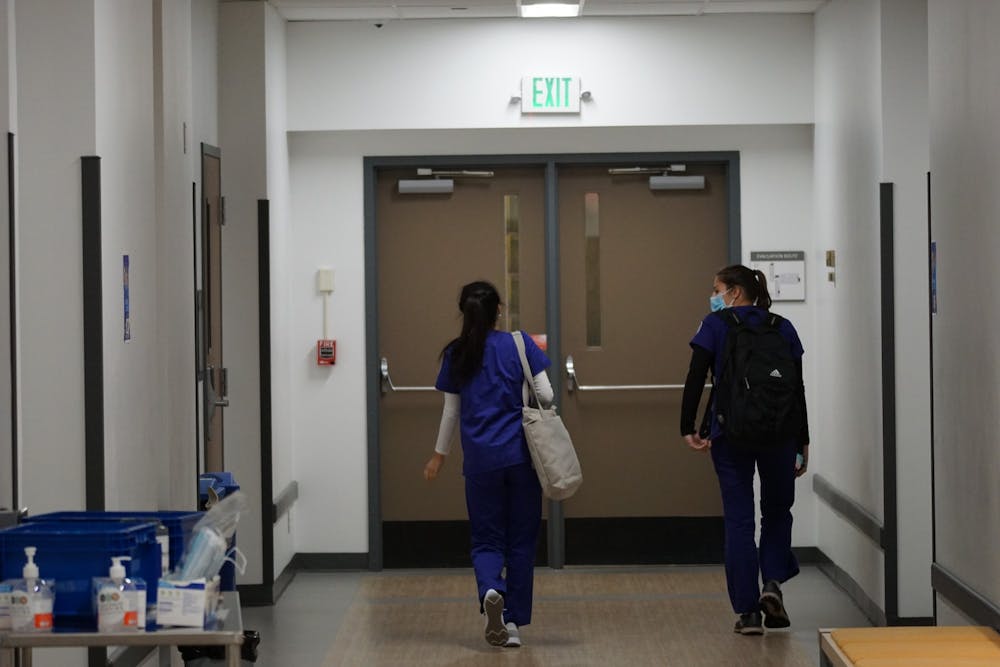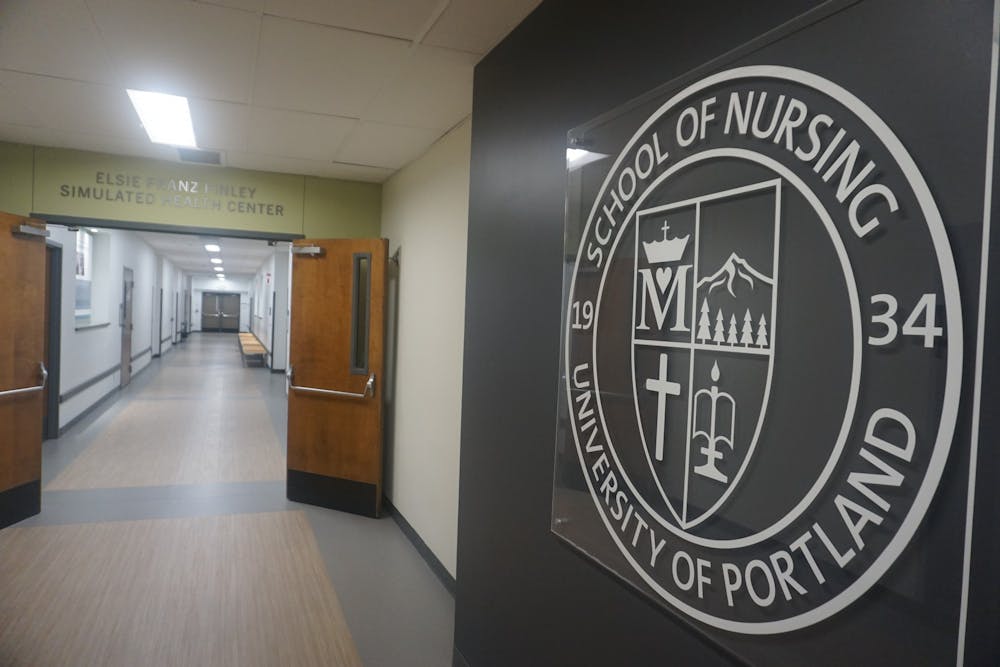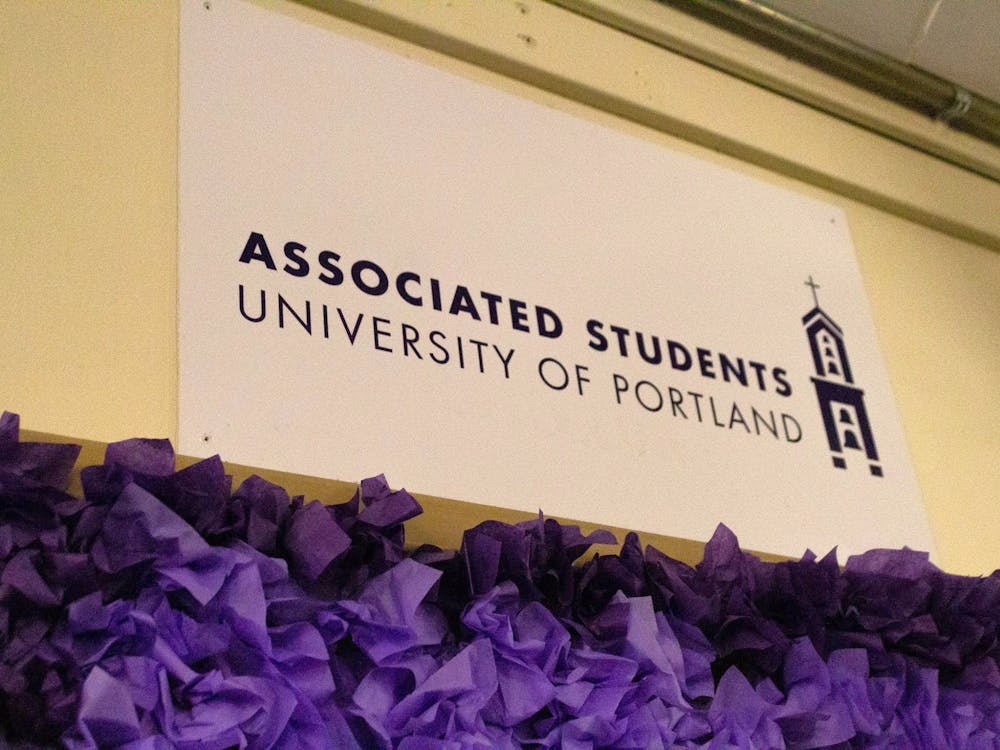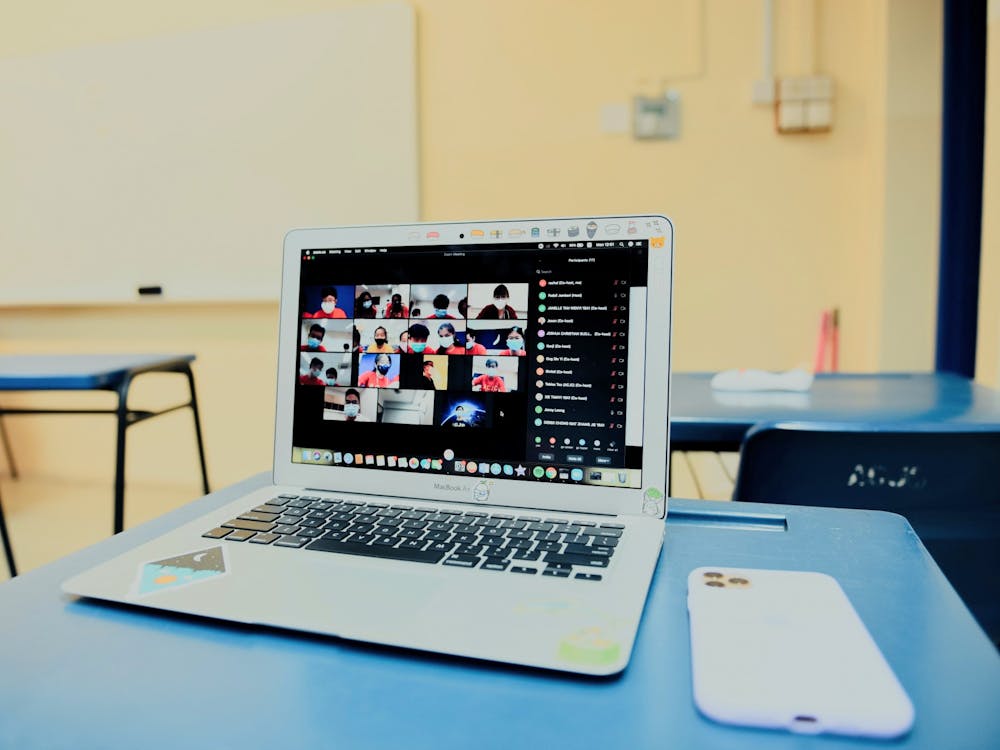UP nursing students are again feeling the effects of COVID-19 on their clinical experience, with traditional clinical partners such as Legacy Health having backed out of hosting students, citing staffing shortages and COVID-19 concerns.
Meanwhile, Oregon health care facilities are experiencing historic nursing staff shortages and are bracing themselves for this to continue due to the executive branch vaccine mandate taking effect.
“So much of off-campus clinicals is out of our control, we are at the mercy of our clinical partners,” Larizza Limjuco Woodruff, the UPSON Center for Clinical Excellence director, said.
In years past, the UP School of Nursing (UPSON) relied on companies like Legacy Health to meet their clinical placement needs. This semester, however, Legacy has elected to forego partnering with the UPSON altogether and have not stated when they will reinstate the partnership. As a result, many students have lost their clinical placements and the administration has had to scramble to find new experiences.
“Legacy was our biggest hit when they decided to send us a memo, without talking to us, without collaborating, literally the week that we were about to start, saying they can't take our students anymore,” Limjuco Woodruff said.
The stress of these staffing shortages is further compounded by the ongoing pandemic. Oregon ICUs are still over 90% capacity.
"After hearing concerns from our essential frontline staff, our Nurse Executive team made the decision to pause clinical placements," said Denise Sartz, Legacy Health director of clinical practice support. "Our nurse preceptors were exhausted, and it was critical they have relief, as they were the ones bravely caring for patients."

A shortage of clinical placements forced the school to reduce clinical hours per student. Now, instead of a full semester of weekly clinical, some students will get only a half of a semester of in-person clinical experience. The other half will be supplemented by on-campus simulations.
“This is not what I was expecting my upper division years to look like,” senior nursing major Madeline Olson said. “I know the school is trying, but this is two years in a row now of empty promises of a good education.”
Last fall, UPSON elected to make some clinical experiences online after losing clinical placements due to COVID-19 risks. For some students, this has led to a crisis of confidence as they look towards entering the workforce.
“This is my second to last year of clinical rotations before I graduate and become a licensed nurse,” senior nursing student Ashley Cole said. “My lack of experience is a bit terrifying.”
In some facilities, students are being taught by members of the Oregon National Guard who have been mobilized by Oregon Governor Kate Brown to fill gaps in staffing shortages. Providence St. Vincent Medical Center, a major clinical partner for the UPSON, has nearly 150 National Guard members helping out.
In other facilities, students have found “no full time staff” there to teach them, but instead traveling nurses who move from facility to facility, according to Limjuco Woodruff.
Despite the changes, the UPSON is confident their students are still getting enough hands-on experience to graduate and step into their careers. They have informed Portland area healthcare facilities of the difficulties students have faced and have had positive responses.
“We have had a lot of responses from our clinical partners and they've said, ‘yes we are really looking at how we're bringing on new nurses into our agencies to make sure that they have connected all of the things that they learned in school to now,’” Limjuco Woodruff said.
As the entire healthcare profession has faced staff shortages and unprecedented challenges during COVID-19, students have held their breaths for what changes to their education may be next.
“I’ve had to rethink my five year plan over and over again,” Cole said.
However, the UPSON doesn’t have answers for students quite yet.
“We're also kind of holding our breath a little bit too alongside the students,” Limjuco Woodruff said. “We are wondering what else is going to be out of our control, and are readying to then have to pivot to a different plan.”
Mia Werner is the Opinions and Faith Editor for the Beacon. She can be reached at wernermi22@up.edu.









